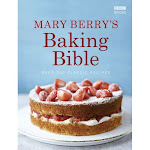
My goodness it has been a corker of a week, I am shattered. So tired, in fact, that I have just woosed out of doing the food shop, despite a distinct lack of essentials in the kitchen such as eggs, milk, and musli!
Well, this is a lovely recipe for such a tired night - suitably easy, appropriately delicious. Hugh FW calls it 'roast fish fillets with roast potatoes'. But that seems a little clinical to me, so I'm going with weeknight fish and chips.
Ingredients
- A good handful of new potatoes per person, cut in half if large
- 2-3 tablespoons vegetable oil
- 2 fat fish fillets per person - choose a sustainable variety if you can, I used farmed halibut (avoid wild like the plague), the recipe suggests gurnard, bream, pollock or mackerel.
- A few bay leaves
- 1 unwaxed lemon
- Sea salt and fresh black pepper
Method
- Parboil the potatoes until just tender to the point of a sharp knife.
- Put the oil in a baking dish and pop in the oven. Preheat the oven to 200C/Gas 6.
- When the oil is smoking hot, tip in the tatties and give them a good stir. Bake the potatoes in the hot oven for 20 minutes.
- After 20 mins give the potatoes a stir, then make a space in the middle for the fish. Add the fish to the tin, then tuck the bay leaves in around the fillets and finely grate over some lemon zest, and season.
- Return to the oven for 10-15 minutes, depending on the fish, or until the fillets flake easily at the point of a knife. Serve at once with sea salt and lemon wedges.



